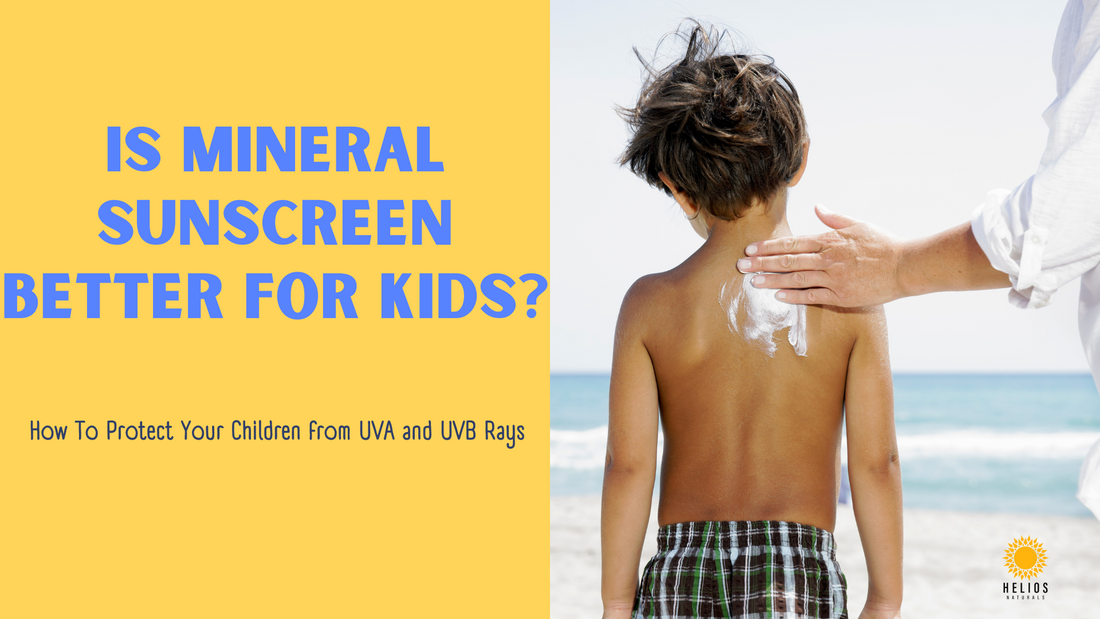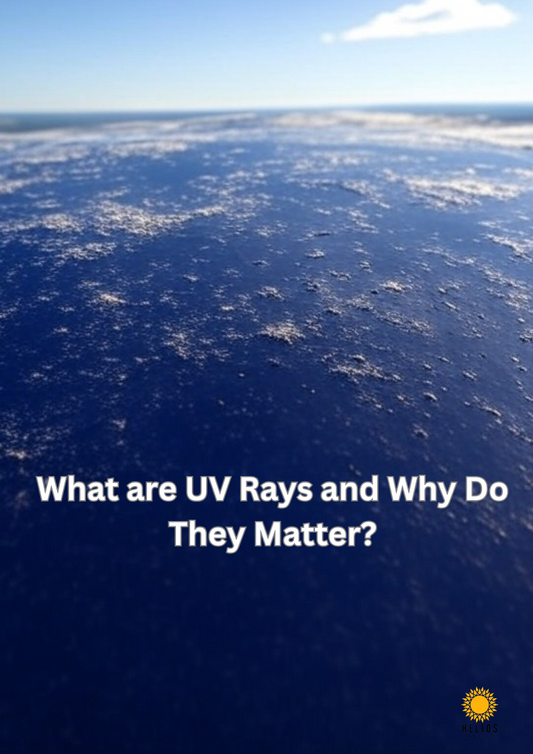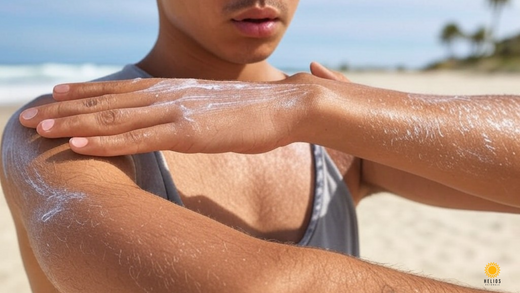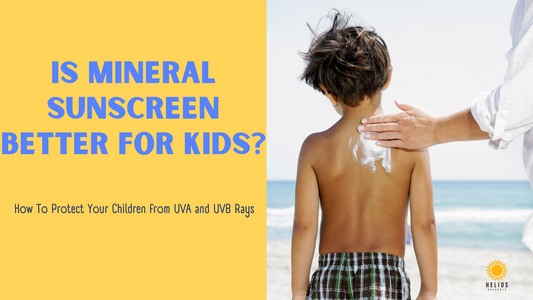
Is Mineral Sunscreen Better for Kids?
Share
Mineral sunscreen is generally recommended for kids because it’s less likely to cause an allergic reaction and protects the skin.
There’s a lot of buzz and concern about potential risks and long term effects of sunscreen, especially with our children’s future in mind. Chemical sunscreens are popular but contain questionable chemicals that the FDA does not recognize as safe and effective.
No one wants their kids to get sunburned and ruin a vacation, but it’s important to consider what products you’re using on their skin to protect them from the sun. Your kids deserve the safest and most effective sunscreen on the market, so why not use a mineral sunscreen?
What is Mineral Sunscreen?
A mineral sunscreen is also known as a physical sunscreen, known for its heavy and ticker texture it uses zinc oxide or titanium dioxide to create a physical barrier on the skin that reflects UV rays.
Mineral sunscreens sit on top of the skin, compared to chemical sunscreens that absorb and blend into the skin. So if you see mineral sunscreen on your skin, that means it’s working like it’s supposed to.
Mineral sunscreens are also recognized by the FDA as generally safe and effective for sun exposure since they contain active minerals instead of chemicals.
Why Do Kids Need Sunscreen?

Kids should wear sunscreen to protect them from harmful UV rays, sunburn can cause skin health issues down the line:
- Skin cancer
- Skin damage
- Advanced aging
- Eye damage
A lot of folks may complain that kids don’t go outside anymore but that’s far from the truth. Children spend more time outside on average than adults do, giving them more sun exposure on average.
What Are The Benefits of Mineral Sunscreen for Kids?
The great thing about putting mineral sunscreen on your kids is that they’re protected from the sun and from any downstream effects from chemical sunscreens.
When applying a mineral sunscreen on your children, you prevent them from potentially negatively reacting to active chemical ingredients like oxybenzone and other culprits for skin irritants.
You don’t need to worry about them harming the environment on a surfing or snorkeling trip either.
Are There Any Downsides of Mineral Sunscreen?

Mineral sunscreen tends to be a thick paste, making it difficult to apply evenly on the skin and some people find the white cast it leaves to be unattractive.
Although this is minor, the lack of downsides make it an effective and safe way to protect your children from the sun.
Some mineral sunscreens have different ingredients to prevent it from being in a white paste and it appears clear but keep in mind those formulas will have more additives.
How to Choose the Best Mineral Sunscreen for Kids

Finding the right mineral sunscreen can be a little intense if you’re not familiar with them. However, with this simple framework you can find out which one works for you:
- Look for key ingredients like non-nano zinc oxide or titanium dioxide
- Avoid ingredients like oxybenzone, homosalate, or octocrylene
- Check the label for broad-spectrum protection and a high SPF
- Find a formula that works well with your children’s skin type
- Search for a water-resistant formula if your kids swim or exercise often
What is Broad-Spectrum Protection?
Broad spectrum protection means the sunscreen offers protection from both UVA and UVB rays.
In the US, the FDA requires all sunscreen to offer broad-spectrum protection. Prior to 2011 there were no requirements for manufacturers to offer broad spectrum protection.
How To Check Sun Protection Factor (SPF) Levels
SPF measures how well the sunscreen protects you from the sun. A common misconception is that SPF shows you how many minutes you can last in the sun, SPF. Solar exposure varies based on time of day, skin, and UV factor. An hour of sun exposure at 9:00 am could equal the same amount of solar energy of 15 minutes at 1:00 pm.
Instead, SPF refers to how much solar energy is required to burn protected skin. According to the FDA, the higher the SPF, the more protection the sunscreen offers.
Do They Make Waterproof Sunscreens For Kids?
No, there are no “waterproof” sunscreens. Eventually the sunscreen formula will degrade and wear off the skin.
Aloe vera, beeswax, and coconut oil are all great natural ingredients to ensure water-resistance. Some other ingredients that are often found in chemical sunscreens are dehydroxanthan gum, cyclodextrin, and polyurethane-34e. If you have sensitive skin, you may want to look for more natural ingredients that have water-resistant properties.
If your children’s lifestyle involves water activities like surfing, swimming, or snorkeling you may want to consider looking for a water-resistant mineral sunscreen.
What Are Some Tips for Applying Sunscreen on Children?
Try to make it a game for them and play their favorite song while you apply mineral sunscreen on them.
Let’s be honest. Putting sunscreen on kids can be a real challenge, especially when they just want to run in the water which means they will have to reapply when they get back out of the water.
Lastly, introduce it as part of your “leaving your house” routine. They say it takes 21 days to build a habit so eventually they’ll welcome it as a signal that they’re about to do a fun activity outside.
FAQs About Mineral Sunscreen for Kids

No, it’s not recommended for babies to wear sunscreen under 6 months old. Once
How Do I Remove Mineral Sunscreen?
In most cases rinsing off in the shower using lukewarm water will be enough to take off mineral sunscreen. However, If you’re having a difficult time you can use a water based cleanser.
Can Mineral Sunscreen Be Used On All Types on Skin?
Of course, mineral sunscreen can be used on all skin types. Most people with sensitive skin prefer mineral sunscreen because it
What are the active ingredients in mineral sunscreen?
Mineral sunscreens contain either non-nano zinc oxide or titanium dioxide.
Can mineral sunscreen leave a white residue?
Yes, that means it’s working effectively and especially means its high in zinc oxide content giving greater sun protection.
How else can I protect my children from the sun?
In addition to mineral sunscreen, use sun protective clothing like shirts, hats, and shorts, and find shade.
Should You Use Mineral Sunscreen On Your Children?
Yes, you should use mineral sunscreen on your kids.
If you weigh the pros and potential drawbacks of mineral sunscreen, you’ll find that the answer is an easy yes. Mineral sunscreen is recognized by the FDA as a generally safe and effective sunscreen. Just make sure your child is over the age of 6 months old before using mineral sunscreen.
If you’re worried about protecting your children’s face with sunscreen, consider giving Helios a try. Six natural ingredients without having to worry about the harmful chemicals with long lasting sun protection.



